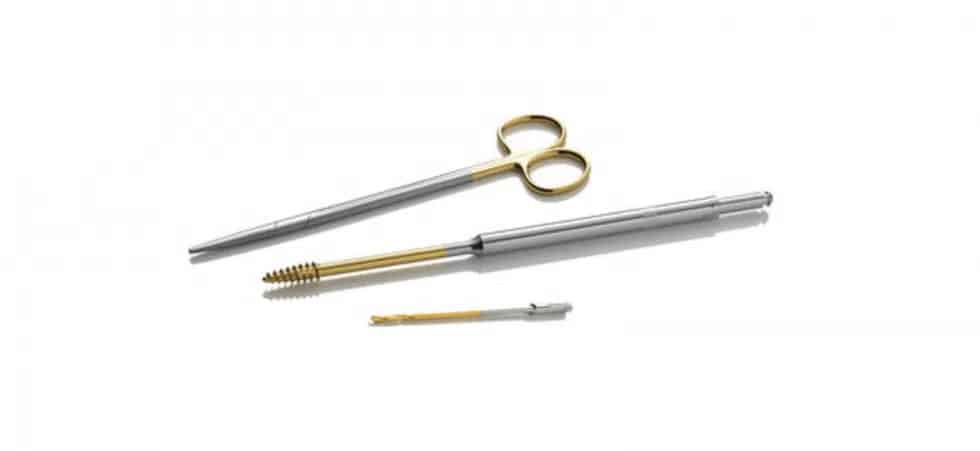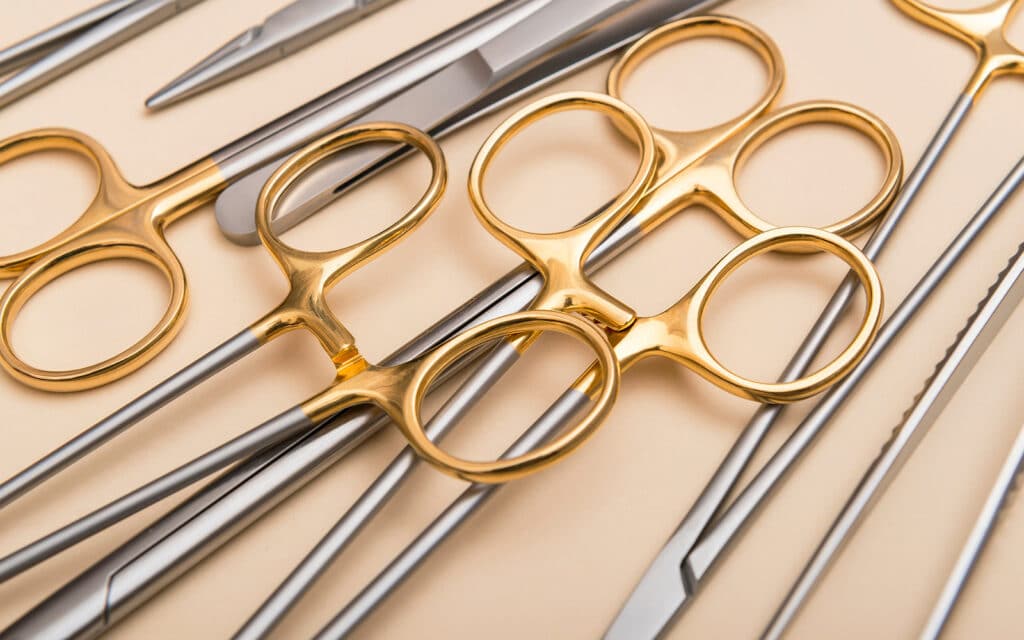
A high-end sports car gets a fresh coat of glossy red paint. The technician walks into the paint booth, picks up the sprayer, and goes to work. The beautiful crimson material is adhering perfectly to the hood, roof, side panels, and doors. It’s also bonding with the windows, chrome bumpers, tires, and other areas where it shouldn’t be.
Without proper preparation, a coating operation can produce unacceptable results and lead to everything from extensive rework to expensive waste. When it comes to chromium coatings on stainless-steel medical devices, a key element of “proper preparation” is precision masking.
Chromium Coatings: Stainless Steel’s Best Friend
The “stainless” in stainless steel is actually a misnomer. Stainless steel can, and does, stain. The different formulations of stainless steel (304, 440 and 17-4 PH) are highly resistant to staining, corrosion, etching, and other changes. However, they aren’t impervious to them.
Over time, medical items made of stainless steel—saws, drills, orthopedic tooling, endoscopic cutters, taps, and many others—will show signs of wear. This occurs both as a result of their use and as a consequence of repetitive cleaning and sanitization requirements after each procedure. Even single-use medical instruments can stain and wear without a proper protective coating.
Unfortunately, once an item develops a certain degree of corrosion and staining, it must be discarded and replaced with a new one. Keeping medical professionals supplied with instruments and devices that function precisely and have an aesthetic appearance that reflects well on an organization and the team using them is a major expense for healthcare providers.
Consequently, the degradation of stainless steel is a major concern for these organizations. That is where chromium coatings come in.
The ME-92® coating in particular provides powerful protection against wear, staining, corrosion, etching, and other possible effects by the use and cleaning of medical devices. Applied with an electrolytic process in thicknesses of 0.00004” to 0.001” per side (1.0-25.0 microns), this fully biocompatible chromium bonds to the base material, greatly enhancing an item’s durability. Plus, the material is inert, non-magnetic, USP Class VI, Tripartite/ISO, and antimicrobial.
As such, it both extends the useful life of an instrument—saving the organization money in the process—and helps produce better patient outcomes by ensuring that items cut, penetrate, grip, and glide as designed.
Maximum Material Adhesion
Precision masking (stop-off masking or selective coating), is a procedure for which ME-92 Operations has its own proprietary process. It ensures that a coating only adheres to surfaces needing protection. And not applied to surfaces that will need a different coating or material adhered.
The four primary reasons an instrument might require precision masking are:
- part of an assembly will subsequently need welding, and coating can negatively impact some types of welds,
- an instrument feature might be press fitted or screwed into a mating part and a chrome deposit may dimensionally prevent a good fit,
- a part could be over-molded, and the presence of chrome may prevent the silicone handle material from adhering to the instrument (see images below),
- or to protect previously applied coatings like Titanium Nitride (gold in color).

These surgical scissors were masked prior to plating to provide a bare golden finish on the handles.
ME-92 Operations’ Proprietary Precision Masking Process
When existing devices receive coatings to improve their performance, or medical device designers and engineers incorporate a coating into an item’s design, ME-92 uses a proprietary process to mask areas that should not receive the chromium material. And that process is useful whether one prototype part receives treatment, or a production run of thousands of parts.
Leveraging the skills of an in-house tool shop and experts with extensive experience in coatings, ME-92 can develop the optimal masking solution for any interior/outside dimension, rib, sleeve, radius, or thread.
Working much the way a surgeon does, the ME-92 team practices unwavering attention to detail throughout the creation and implementation of a masking solution. This includes extensive quality checks to ensure the selective coating process is proceeding with expectations and producing desirable results—both where the material is applicable and where it is not applicable.
As a result, healthcare professionals who use ME-92®-coated devices know they are getting the high-end sports car of medical implements—tools that they deserve and that patients and their families expect.